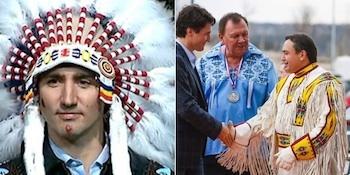Image Caption
Summary
The Indigenous Bar Association says it’s disappointed with Prime Minister Justin Trudeau for his failure to appoint an Indigenous candidate to the Supreme Court of Canada.
With a promise to work with Indigenous peoples on a nation-to-nation basis, Trudeau missed an opportunity to do something important and meaningful to live up to his much touted “new approach, both to Indigenous/government relations, and for making appointments to the Court that are more accessible and fair.
“Further, given the Atlantic Provinces' ongoing refusal to appoint Indigenous people to the very bench from which the nominee was drawn, suggests Trudeau is offering a reward for exclusion and the court continues to look precisely how it has for decades.”
Canada announced in early August the creation of an independent non-partisan advisory board to submit a short list of names for consideration by the Prime Minister to nominate to the SCOC. The Independent Advisory Board was mandated to recommend qualified, functionally bilingual candidates who reflect a diversity of backgrounds and experiences for appointment to the top court. Theere are a number of qualified Indigenous candidates, reads a press release from the association.
The result is that on Oct. 18, 2016, Justice Malcolm Rowe of Newfoundland, is the Liberal nominee.
The IBA congratulates Mr. Justice Rowe on his nomination and recognizes it is an historic and positive decision for Atlantic Canadians. Yet, "the ongoing exclusion of Indigenous Justices on the Supreme Court, which is being met with a shrugging of the shoulders… demonstrates a lack of commitment on the part of the government to diversity and to transforming Canada's legal system as part of the reconciliation process," said Koren Lightning-Earle, IBA president.
In its final report, the Truth & Reconciliation Commission called for the transformation of Canada's legal system through greater inclusion of Indigenous peoples:
A commitment to truth and reconciliation demands that Canada's legal system be transformed. It must ensure that Aboriginal peoples have greater ownership of, participation in, and access to its central driving forces. Canada's constitution must become truly a constitution for all of Canada. Aboriginal peoples need to become the law's architects and interpreters... (Vol. 6, p. 51)
The Indigenous Bar Association and Canada have publicly endorsed the findings of the Truth and Reconciliation Commission and committed to the implementation of all "calls to action". While the IBA continues to seek implementation of the TRC's work, Canada continues to stall and maintain the status quo.

